Related Research Articles
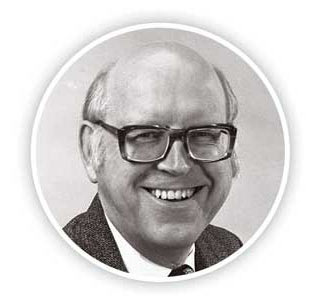
Allen Newell was an American researcher in computer science and cognitive psychology at the RAND Corporation and at Carnegie Mellon University's School of Computer Science, Tepper School of Business, and Department of Psychology. He contributed to the Information Processing Language (1956) and two of the earliest AI programs, the Logic Theorist (1956) and the General Problem Solver (1957). He was awarded the ACM's A.M. Turing Award along with Herbert A. Simon in 1975 for their contributions to artificial intelligence and the psychology of human cognition.
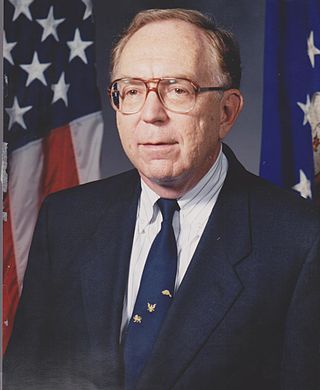
Edward Albert Feigenbaum is a computer scientist working in the field of artificial intelligence, and joint winner of the 1994 ACM Turing Award. He is often called the "father of expert systems."

Dabbala Rajagopal "Raj" Reddy is an Indian-American computer scientist and a winner of the Turing Award. He is one of the early pioneers of artificial intelligence and has served on the faculty of Stanford and Carnegie Mellon for over 50 years. He was the founding director of the Robotics Institute at Carnegie Mellon University. He was instrumental in helping to create Rajiv Gandhi University of Knowledge Technologies in India, to cater to the educational needs of the low-income, gifted, rural youth. He was the founding chairman of International Institute of Information Technology, Hyderabad. He is the first person of Asian origin to receive the Turing Award, in 1994, known as the Nobel Prize of Computer Science, for his work in the field of artificial intelligence.

Peter Norvig is an American computer scientist and Distinguished Education Fellow at the Stanford Institute for Human-Centered AI. He previously served as a director of research and search quality at Google. Norvig is the co-author with Stuart J. Russell of the most popular textbook in the field of AI: Artificial Intelligence: A Modern Approach used in more than 1,500 universities in 135 countries.

A multi-agent system is a computerized system composed of multiple interacting intelligent agents. Multi-agent systems can solve problems that are difficult or impossible for an individual agent or a monolithic system to solve. Intelligence may include methodic, functional, procedural approaches, algorithmic search or reinforcement learning.
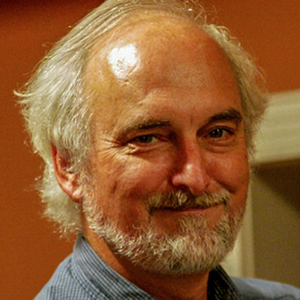
Timothy Wilking Finin is the Willard and Lillian Hackerman Chair in Engineering and is a Professor of Computer Science and Electrical Engineering at the University of Maryland, Baltimore County (UMBC). His research has focused on the applications of artificial intelligence to problems in information systems and has included contributions to natural language processing, expert systems, the theory and applications of multiagent systems, the semantic web, and mobile computing.

Austin Tate is Emeritus Professor of Knowledge-based systems in the School of Informatics at the University of Edinburgh. From 1985 to 2019 he was Director of AIAI in the School of Informatics at the University of Edinburgh.

Robert Jackson Marks II is an American electrical engineer, computer scientist and Distinguished Professor at Baylor University. His contributions include the Zhao-Atlas-Marks (ZAM) time-frequency distribution in the field of signal processing, the Cheung–Marks theorem in Shannon sampling theory and the Papoulis-Marks-Cheung (PMC) approach in multidimensional sampling. He was instrumental in the defining of the field of computational intelligence and co-edited the first book using computational intelligence in the title. A Christian and an old earth creationist, he is a subject of the 2008 pro-intelligent design motion picture, Expelled: No Intelligence Allowed.
Heung-Yeung "Harry" Shum is a Chinese computer scientist. He was a doctoral student of Raj Reddy. He was the Executive Vice President of Artificial Intelligence & Research at Microsoft. He is known for his research on computer vision and computer graphics, and for the development of the search engine Bing.
Michael Peter Georgeff is a computer scientist and entrepreneur who has made contributions in the areas of Intelligent Software Agents and eHealth.
Machine ethics is a part of the ethics of artificial intelligence concerned with adding or ensuring moral behaviors of man-made machines that use artificial intelligence, otherwise known as artificial intelligent agents. Machine ethics differs from other ethical fields related to engineering and technology. It should not be confused with computer ethics, which focuses on human use of computers. It should also be distinguished from the philosophy of technology, which concerns itself with technology's grander social effects.

Ronald Robert Yager is an American researcher in computational intelligence, decision making under uncertainty and fuzzy logic. He is currently Director of the Machine Intelligence Institute and Professor of Information Systems at Iona College.

Qiang Yang is the Chair Professor, Department Head of CSE, HKUST in Hong Kong and University New Bright Professor of Engineering and Chair Professor from 2015. He was the founding head of Noah's Ark Lab. He had taught at the University of Waterloo and Simon Fraser University. His research interests are data mining and artificial intelligence.
Mohamed (Mo) El-Aref El-Hawary, was an Egyptian-born Canadian scientist of electric power system studies and the involvement of traditional/modern optimization algorithms, fuzzy systems, and artificial neural networks in their applications. El-Hawary was a mathematician, electrical engineer, computational intelligence researcher and professor of electrical and computer engineering at Dalhousie University.

David Atienza Alonso is a Spanish/Swiss scientist in the disciplines of computer and electrical engineering. His research focuses on hardware‐software co‐design and management for energy‐efficient and thermal-aware computing systems, always starting from a system‐level perspective to the actual electronic design. He is a full professor of electrical and computer engineering at the Swiss Federal Institute of Technology in Lausanne (EPFL) and the head of the Embedded Systems Laboratory (ESL). He is an IEEE Fellow (2016), and an ACM Fellow (2022).
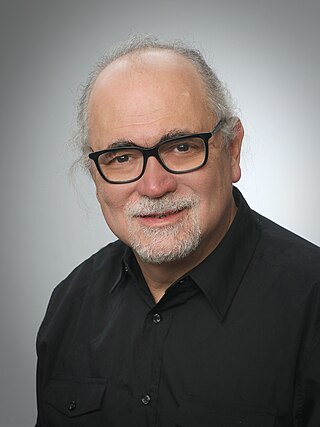
Marcelo Godoy Simões is a Brazilian-American scientist engineer, professor in Electrical Engineering in Flexible and Smart Power Systems, at the University of Vaasa. He was with Colorado School of Mines, in Golden, Colorado, for almost 21 years, where he is a Professor Emeritus. He was elevated to Fellow of the Institute of Electrical and Electronics Engineers (IEEE) for applications of artificial intelligence in control of power electronics systems.
Yolanda Gil is a Spanish computer scientist specializing in knowledge discovery and knowledge-based systems at the University of Southern California (USC). She served as chair of SIGAI the Association for Computing Machinery (ACM) Special Interest Group (SIG) on Artificial Intelligence, and the president of the Association for the Advancement of Artificial Intelligence (AAAI).
As of 2023, the Institute of Electrical and Electronics Engineers (IEEE) has 7,236 members designated Fellow, each of whom is associated with one of the 41 societies under the IEEE.
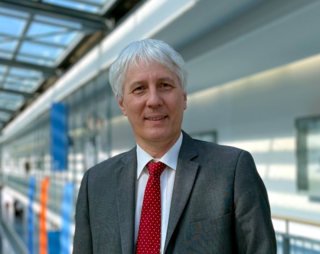
Alois Christian Knoll is German computer scientist and professor at the TUM School of Computation, Information and Technology at the Technical University of Munich (TUM). He is head of the Chair of Robotics, Artificial Intelligence and Embedded Systems.
Chandrajith Ashuboda "Ashu" Marasinghe is a Sri Lankan politician, professor and academic. He served as an advisor to Sri Lankan president Ranil Wickremesinghe and also served as a former member of parliament of Sri Lanka. He was a national list member of the Parliament of Sri Lanka proposed by United National Front following the 2015 Sri Lankan parliamentary election and subsequently served in the 15th Parliament of Sri Lanka as an MP.
References
- 1 2 3 "Michael Negnevitsky". University of Tasmania . Retrieved 21 December 2023.
- ↑ "Michael Negnevitsky". IEEE Xplore . Retrieved 21 December 2023.
- ↑ "2023 Newly Elevated Fellows" (PDF). IEEE . Retrieved 21 December 2023.
- ↑ Negnevitsky, Michael. "Artificial Intelligence: A Guide to Intelligent Systems, 3e". Amazon.